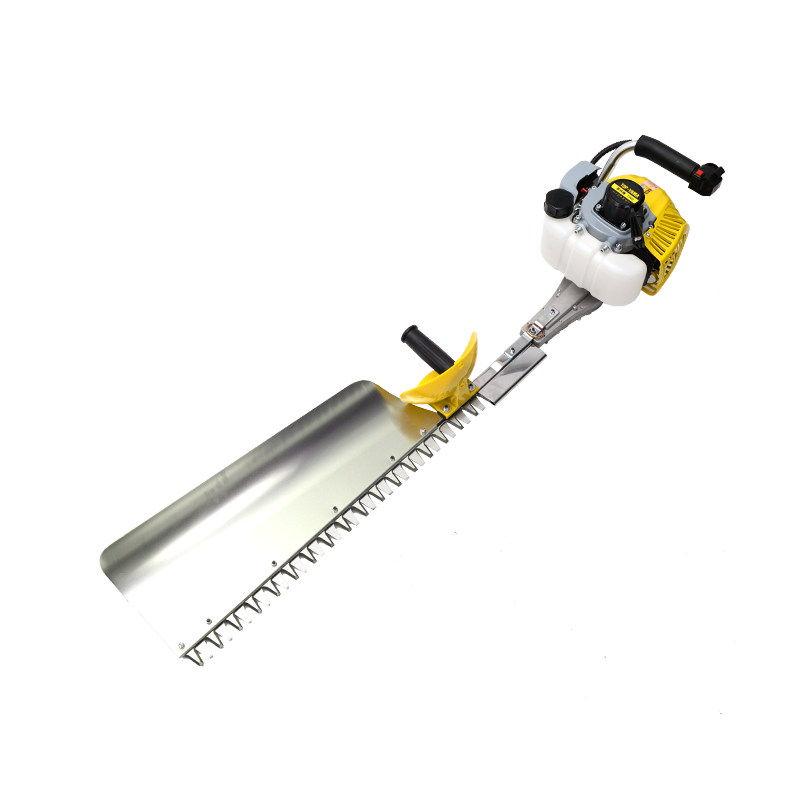Gasoline chain saws have been a cornerstone of outdoor power equipment for decades, providing homeowners, landscapers, and professionals with a reliable tool for cutting trees, branches, and logs. Over the years, these machines have undergone significant improvements, becoming more powerful, efficient, and user-friendly. As the demand for high-performance tools in forestry, landscaping, and construction continues to rise, the gasoline chain saw industry is evolving to meet the challenges of modern outdoor work.
Why Gasoline Chain Saws Are a Popular Choice
The gasoline chain saw remains one of the popular and versatile tools in the outdoor power equipment market. Known for their portability and high power output, these saws are particularly useful for tasks that require mobility or where access to electricity is limited. Unlike electric models, gasoline-powered chain saws are not constrained by power cords, making them ideal for large-scale operations like logging, land clearing, and firewood production.
The high power of a gasoline chain saw allows it to handle tougher tasks with greater ease compared to electric models. Whether cutting through dense tree trunks or trimming large branches, the engine-driven power provides the necessary force for efficient cutting. This makes gasoline chain saws a go-to tool for professionals and serious DIY enthusiasts who demand high performance in a variety of working conditions.
Key Benefits of Gasoline Chain Saws
Portability: One of the significant advantages of gasoline chain saws is their portability. Because they are powered by gas, users do not need to worry about finding a power source or being limited by cord length, as is the case with electric chain saws. This mobility makes gasoline chain saws an option for those working in remote areas or large properties where access to electricity may be limited.

Power and Efficiency: Gasoline-powered engines provide more cutting power than electric counterparts, making them suitable for heavy-duty tasks. The ability to tackle larger trees and tougher wood without stalling is a key selling point. With higher horsepower engines, gasoline chain saws can work continuously for longer periods, making them efficient for large-scale operations.
Durability: Gasoline chain saws are built to withstand demanding work conditions. The robust construction and high-quality materials used in their design ensure that these saws can endure extended use in tough environments. Whether it's felling large trees in a forest or pruning branches in a backyard, gasoline chain saws are designed to perform under pressure.
Versatility: Gasoline chain saws are highly versatile, able to handle a wide range of cutting tasks. From trimming small branches to cutting down entire trees, these saws can be used for both professional and personal purposes. With the right attachments and bars, a gasoline chain saw can be adapted to a variety of cutting applications.
Innovations in Gasoline Chain Saw Technology
As the outdoor power equipment industry continues to evolve, so too does the technology behind gasoline chain saws. Innovations aimed at improving safety, reducing emissions, and increasing performance have driven the development of more advanced models in recent years.
One notable advancement is the development of low-emission engines. With growing concerns over environmental impact, manufacturers have introduced cleaner-burning engines that reduce harmful emissions while maintaining power and performance. These eco-friendly models help users meet stringent environmental regulations without compromising on efficiency.
Another area of innovation is the introduction of vibration-reduction systems. Prolonged use of gasoline chain saws can to hand-arm vibration syndrome, which is a common issue for operators who use these tools for extended periods. To mitigate this, manufacturers have introduced improved anti-vibration systems that make the tool more comfortable to use, even for long sessions of cutting.
Moreover, advancements in ergonomic design have made gasoline chain saws easier and more comfortable to handle. Lighter materials, better weight distribution, and adjustable handles help reduce user fatigue and enhance control, allowing for better precision and less strain on the operator.
The Role of Gasoline Chain Saws in Commercial and Professional Use
Gasoline chain saws are indispensable tools in commercial applications. In industries like forestry, landscaping, and construction, these saws are vital for tasks that require speed, power, and efficiency. The ability to quickly fell trees, clear brush, and perform detailed cutting jobs is essential in these sectors.


 English
English русский
русский Español
Español عربى
عربى









